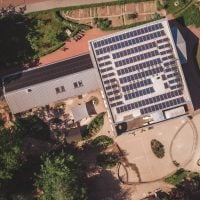Deadline: 31-May-23
European Union is seeking nomination for the REGIOSTARS Award.
REGIOSTARS are the yearly competition organised by the European Commission’s Directorate General Regional and Urban Policies since 2008. Over the years it has become the Europe’s label of excellence for EU-funded projects, which demonstrate the impact and inclusiveness of regional development.
Thematic Categories
- The winners of the six categories will get a local communication campaign managed in cooperation with DG REGIO to promote the awarded activities in the region.
- From this year the REGIOSTARS are awarded to projects in six thematic categories:
- A Competitive and Smart Europe: They are looking for good projects that promote innovative and smart economic transformation and regional ICT connectivity. This includes projects that enhance digitalisation processes and show innovative approaches to implementing RIS strategies involving stakeholders. Projects that prepare European SMEs for competing in a globalised economy are welcome and may involve, for example, activities that develop new technology and products, improve innovation systems, build competitiveness through design and creative industries, foster social entrepreneurialism, enhance social and service innovation, support new business models and practice-based innovations. Contributing to sustainable regional innovation systems and furthering the job market in the digital industries could be features of such projects.
- A Green Europe: They are looking for good projects that promote a greener and more resilient Europe and help achieve the European Union’s Green Deal goals of climate neutrality, and improve the environmental conditions. Amongst others, projects can include investments in green initiatives that improve air and water quality, promote sustainable agriculture, preserve environmental systems. Creating an effective circular economy, transforming towards a resource- efficient economy or transitioning to renewables can also be features of such projects.
- A Connected Europe: They are looking for good projects that promote the delivery of a more connected Europe. This includes projects that support efficient, safe and environmentally friendly mobility solutions within the EU that create the conditions for a competitive industry generating growth and jobs. These can also include wide-ranging issues such as passenger rights or clean fuels.
- A Social and Inclusive Europe: They are looking for good projects that contribute to a more inclusive society at large, nondiscrimination of any person, and gender equality within and beyond the EU. In particular, projects shall be supportive of the 20 principles as well as of the three targets of the Action Plan of the European Pillar of Social Rights.
- A Europe Closer to the Citizens: They are looking for good projects that support the implementation of local and regional strategies, such as, for example, Sustainable Urban Development (SUD) strategies or territorial and local development strategies. Projects can also showcase specific areas of improvement for citizens daily life and support capacity building. Projects aim to help the region encounter specific development challenges in a functional urban area or territory and develop specific place-based solutions for the citizens.
- Topic of the Year (European Year of Skills 2023): They are looking for good projects that support workers in need to acquire new skills and move to new jobs in a different sector of economy or in need to upskill to keep their job in a new work environment. These can be projects that engage with labour market services to improve and innovate vocational trainings and education.
Eligible Projects
- All projects which received funding from European Regional Development Fund (ERDF) (including Interreg), Cohesion Fund (CF), European Social Fund (ESF) and European Social Fund +, Just Transition Fund, and any Interreg strand.
- In terms of funding periods, projects from both the 2014-2020 and 2021-2027 period are eligible. Please note that only completed projects are eligible.
- In addition, projects and initiatives that combine the aforementioned funds with other EU funds are welcome.
Eligibility Criteria
- Applications must be in one of the official EU languages.
- The application shall include an endorsement letter of the relevant Managing Authority. The endorsement letter – a filled endorsement form signed by the head of the Managing Authority or an email with the equivalent information from the Head of the Managing Authority confirming endorsement – should be uploaded as a PDF together with the application. (Please note that it is possible to submit up to five projects per programme. The Managing Authority is responsible for respecting the limit.)
- The application shall refer to a project that has received EU co-financing from the European Regional Development Fund, the Cohesion Fund, the European Social Fund, Just Transition Fund or a project which has received EU funding under any strand of Interreg programmes, starting earliest on 1 January 2014.
- Only completed projects are considered. A completed project is a project which has carried out all the planned activities, has received its final financial contribution and has been declared closed by the project beneficiary and/or the Managing Authority.
- The project must clearly refer to one of the 6 award categories. The same project cannot be submitted for several categories.
Award Criteria
- All eligible applications will be assessed by the REGIOSTARS jury against the following award criteria:
- Cohesion: The contribution of the project to economic, social and territorial cohesion at large; with a supraregional to European perspective. A project’s added value to in relation to cohesion will be evaluated here.
- Impact: The local and regional impact of the project and the quality of the final results. How did the project change something for the better in its region?
- Innovation: The innovative character of the project within the logic of the selected award category. What is new? What has not been done before? Innovation may be understood in economic, social and/or ecological terms.
- Sustainability: The potential of the project to last into the future, in terms of economic sustainability. Efforts of the project to live beyond the actual project life-time should be demonstrated.
- Citizens: How citizens and actors of civil society got involved in the development and/or implementation of the project.
- Transferability: The potential of the project to be transferred to other regions in Europe and, in the best case, to be upscaled and rolled out across the European Union.
For more information, visit European Union.









































